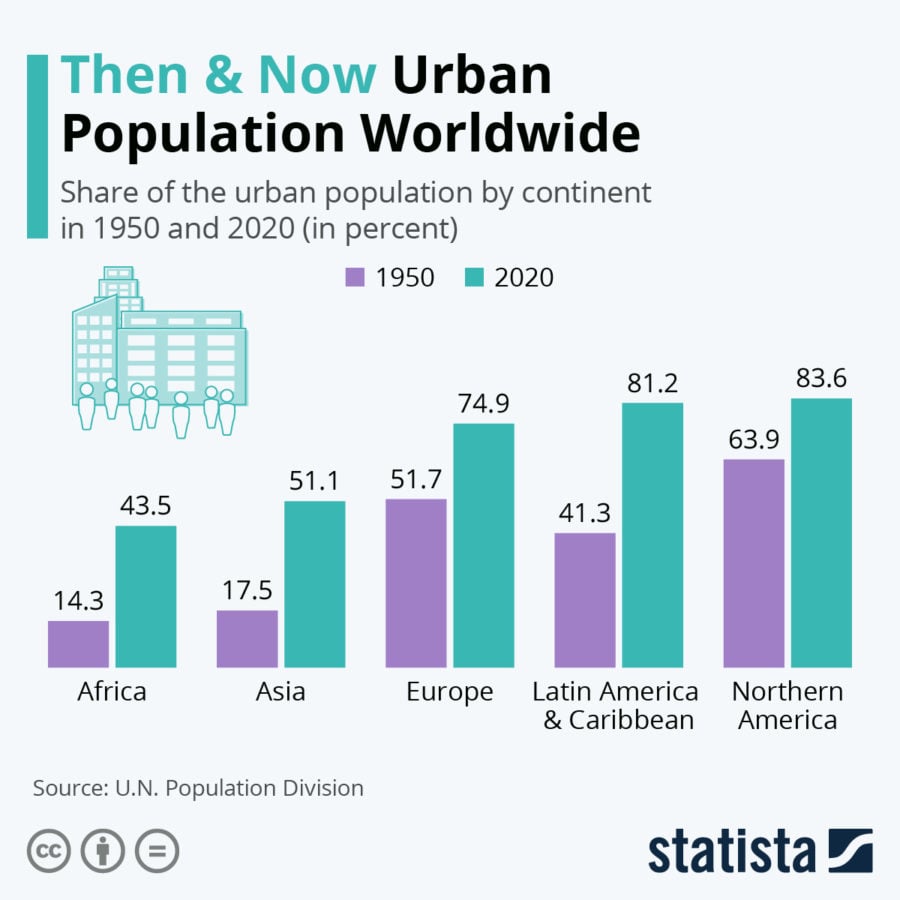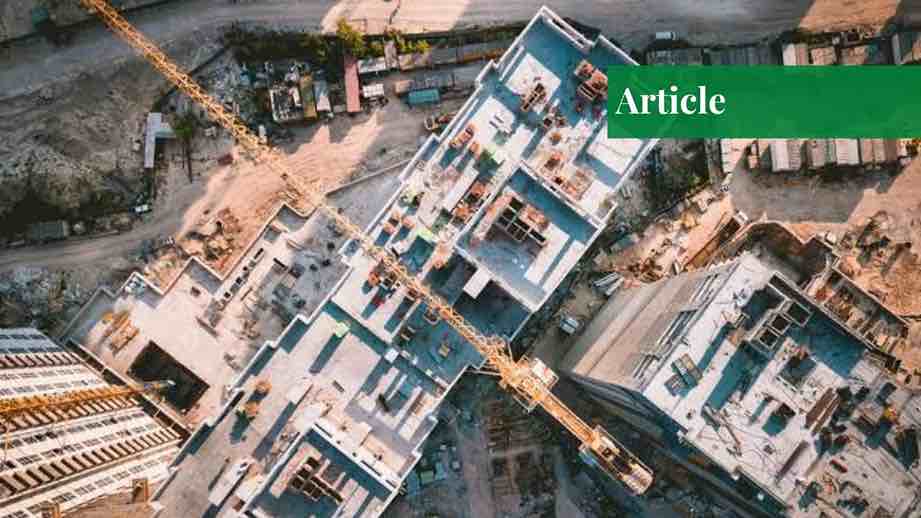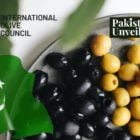Urbanizing the World
Urbanization refers to the mass movement of populations from rural areas to urban areas for the sake of better living and opportunities. According to the UN’s estimate in 2019 half of the population i.e., around 4.2 billion people live in an urban area. By 2041, this figure might increase to 6 billion people.
During a panel discussion at American University’s School of International Service, Christopher Williams from UN-Habitat argued that: “Urbanization is both an opportunity and a challenge”. It is an opportunity when a tremendous amount of innovation is going to take place. However, urbanization can be the greatest of all challenges when many cities are ill-equipped to handle a large influx of population.

Sustainable urbanization is closely linked to economic growth as being a hub of innovation and progress, and cities, being the hub of innovation and entrepreneurship, generate about 80% of the global GDP.
UN Secretary-General Ban Ki-moon’s message delivered by Sahle-Work Zewde, Director-General of the United Nations Office at Nairobi, to the UN-Habitat Governing Council in Nairobi, “Our struggle for global sustainability will be won or lost in cities. The potential of urbanization to lift millions of people from poverty and to accelerate economic growth is huge, as demonstrated in recent decades by some of the major emerging economies.”
Sustainable Development Goal 11
Sustainable urbanization is a pertinent need for all because it has been predicted that by 2050, about 6.5 billion people will be urbanized. To develop such a sustainable city and urbanization, achieving SDG 11 must be fulfilled. SDG 11 is to make cities and human settlements inclusive, safe, resilient and sustainable.
It is deeply linked and interconnected to SDG 8, that is, promoting sustained, inclusive and sustainable economic growth, full and productive employment and decent work for all; SDG 3, to ensure health and well-being for all, at every stage of life; and SDG 2, end hunger and ensure access by all people.
Pakistan is the most urbanized country in South Asia, with its cities generating about 55% of GDP. Around 95% of Pakistan’s Federal tax revenue is generated from 10 major cities. Karachi alone generates 12-15% of Pakistan’s GDP and 55% of Federal tax revenue. Due to the rapid increase in urbanization, it is estimated that the slum population alone is projected to increase to 2 billion people by 2030.
Seeking Sustainable Urbanization in Pakistan
Sustainable development cannot be achieved without significantly transforming the way we build and manage our urban spaces. In Pakistan, there’s a lack of city-level data which is a major constraint in designing evidence-based policies around sustainable urbanization. The cities of Pakistan suffer from a scarcity of space for residents. Hence, the current pattern of the urbanization of megacities puts a serious concern on sustainability.
Moreover, the absence of a business model and heavy reliance on state subsidies are the key causes of damping progress around sustainable urbanization in Pakistan. Karachi, a city of 20 million population, lacks public transport and proper solid waste management. Upgrading Lahore’s public transport might come at the expense of the city’s historical legacy.
SDG goals cannot solely provide an answer to all problems faced by Pakistan, but they do offer key areas of consideration that serves as a blueprint for finding solutions and a way forward. At the institutional level, urban focus in policies needs to be institutionalized.
Secondly, decisions taken at the federal or provincial level need to involve the city’s local government, infrastructure development, industrial incentives, and land-use rule to ensure sustainability. Thirdly, cities’ government systems must be involved in incentivizing investments. Lastly, cities’ contribution to the national economy should be duly recognized and development plans should be designed by involving local stakeholders.
It is also important to maintain city records in achieving SDG targets and making such information public with the purpose to create motivation for the private sector and promoting better accountability. From a legal perspective, it is very important to improve the legal and regulatory environment related to housing and increase the supply of affordable, legal shelter with security and access to basic services.
Conclusion
For Pakistan to achieve the goal of urban sustainability, it is highly crucial and pertinent to involve the city’s local government in decision making, recognize the city’s contribution to the national economy, and involve local stakeholders in the developmental plan. The culture around sustainable development must be fostered and recreated.
Moreover, it is also important to address the low level of women’s participation, conduct surveys, maintain city records in achieving the targets of SDG 11, and develop policies for affordable and sustainable housing. It is high time to provide solutions for water, transportation and sanitation system, all of which requires thoughtful planning, investment and management.
If you want to submit your articles, research papers, and book reviews, please check the Submissions page.
The views and opinions expressed in this article/paper are the author’s own and do not necessarily reflect the editorial position of Paradigm Shift.



















